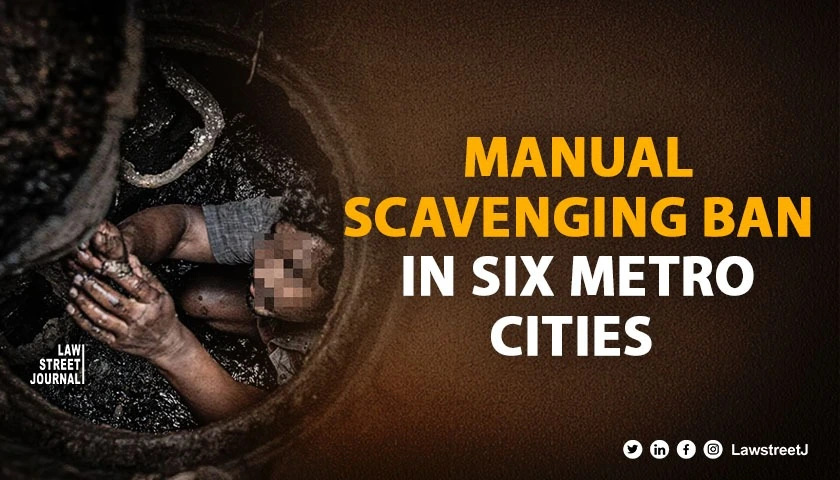New Delhi: The Supreme Court of India has issued crucial directives to end manual scavenging and manual sewer cleaning in six major metropolitan cities, emphasizing the urgent need for modern sanitation practices.
Supreme Court Orders Eradication of Manual Scavenging in Major Cities
Justices Sudhanshu Dhulia and Aravind Kumar made significant observations while hearing a writ petition concerning the eradication of manual scavenging across India.
The court was addressing the ongoing case Dr. Balram Singh v. Union of India & Ors., in which previous orders had directed the Union of India to coordinate with states regarding the status of manual scavenging.
Modern Sanitation Practices to Replace Manual Sewer Cleaning in India
Additional Solicitor General Aishwarya Bhati informed the court, “Out of 775 districts across the country, no manual scavenging or manual sewer cleaning is being carried out in 456 districts.”
Expressing concern about implementation, the court noted, “There is no clarity on whether manual scavenging and manual sewer cleaning have been eradicated or discontinued in at least some states or metropolitan cities.”
Also Watch
In response, the court specifically focused on six metropolitan cities—Delhi, Mumbai, Kolkata, Chennai, Bangalore, and Hyderabad—observing that “All modern scientific machinery and tools are available for scavenging and sewer cleaning without active human participation. Therefore, manual scavenging and manual sewer cleaning should not be required.”
The court has directed the Chief Executive Officers of these cities to file precise affidavits detailing how and when manual scavenging and manual sewer cleaning were stopped in their respective jurisdictions. These affidavits must be submitted by February 13, 2025.
Mr. K. Parameshwar served as Amicus Curiae in the case, while Additional Solicitor General Aishwarya Bhati represented the Union of India, along with several other senior advocates and legal representatives.
Case Title: Dr. Balram Singh v. Union of India & Ors.











